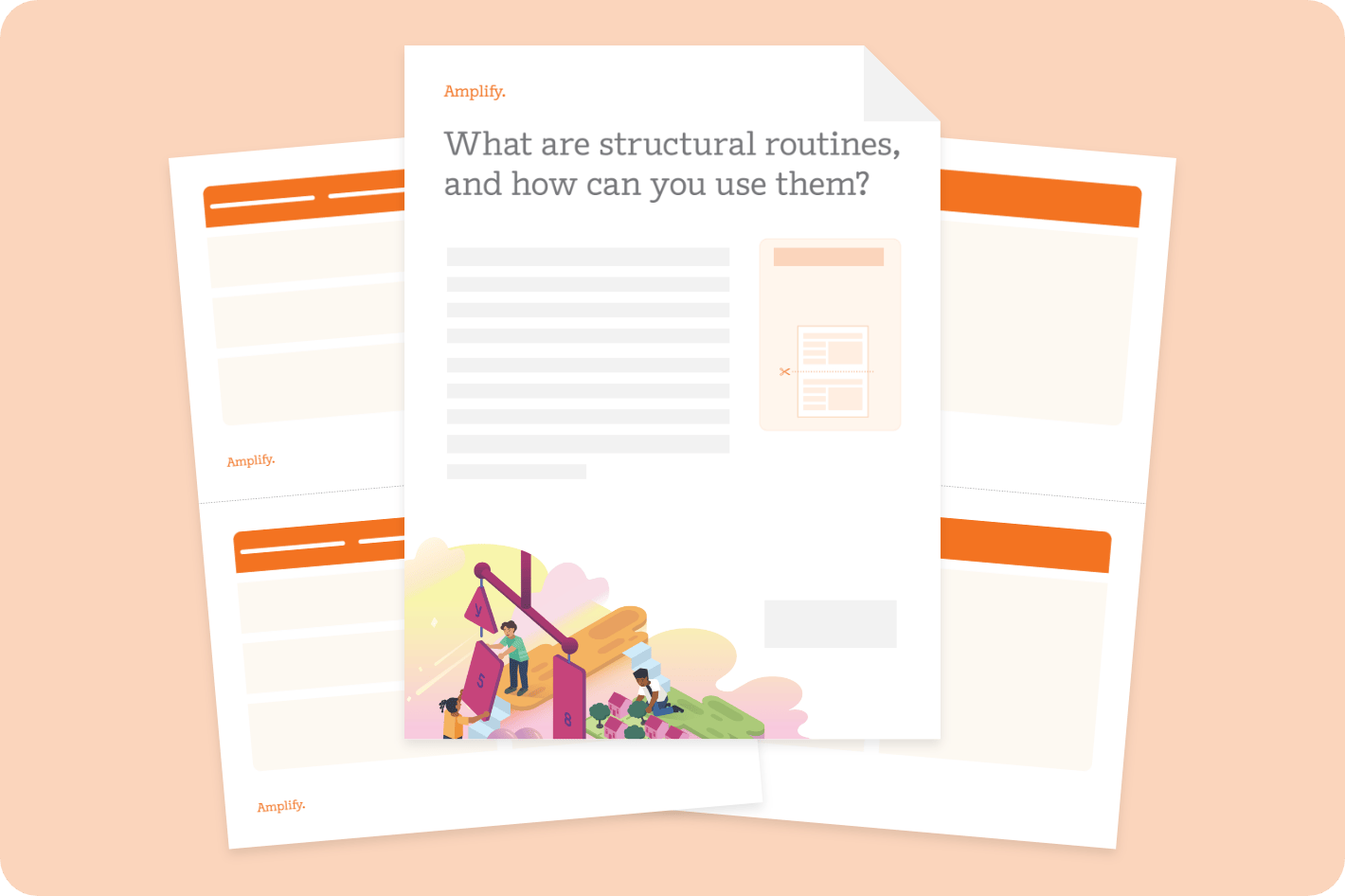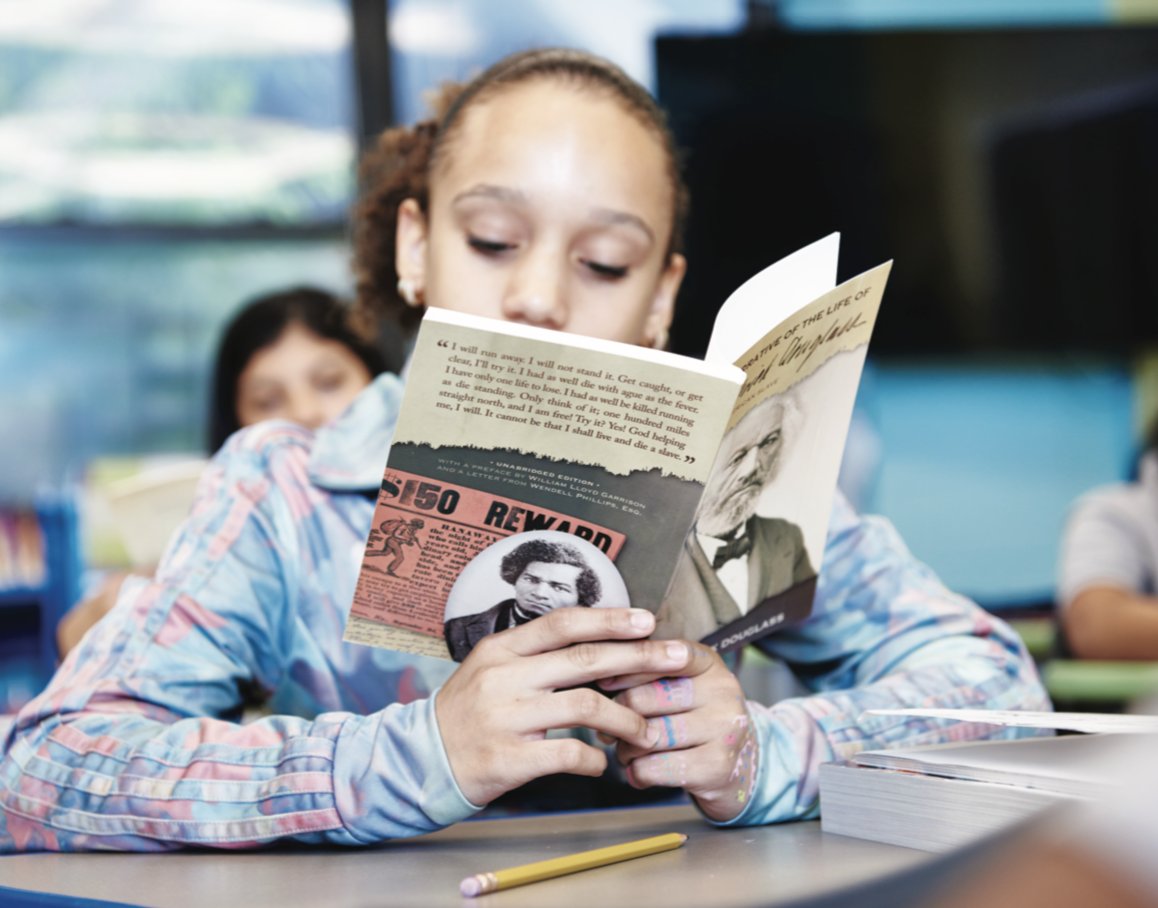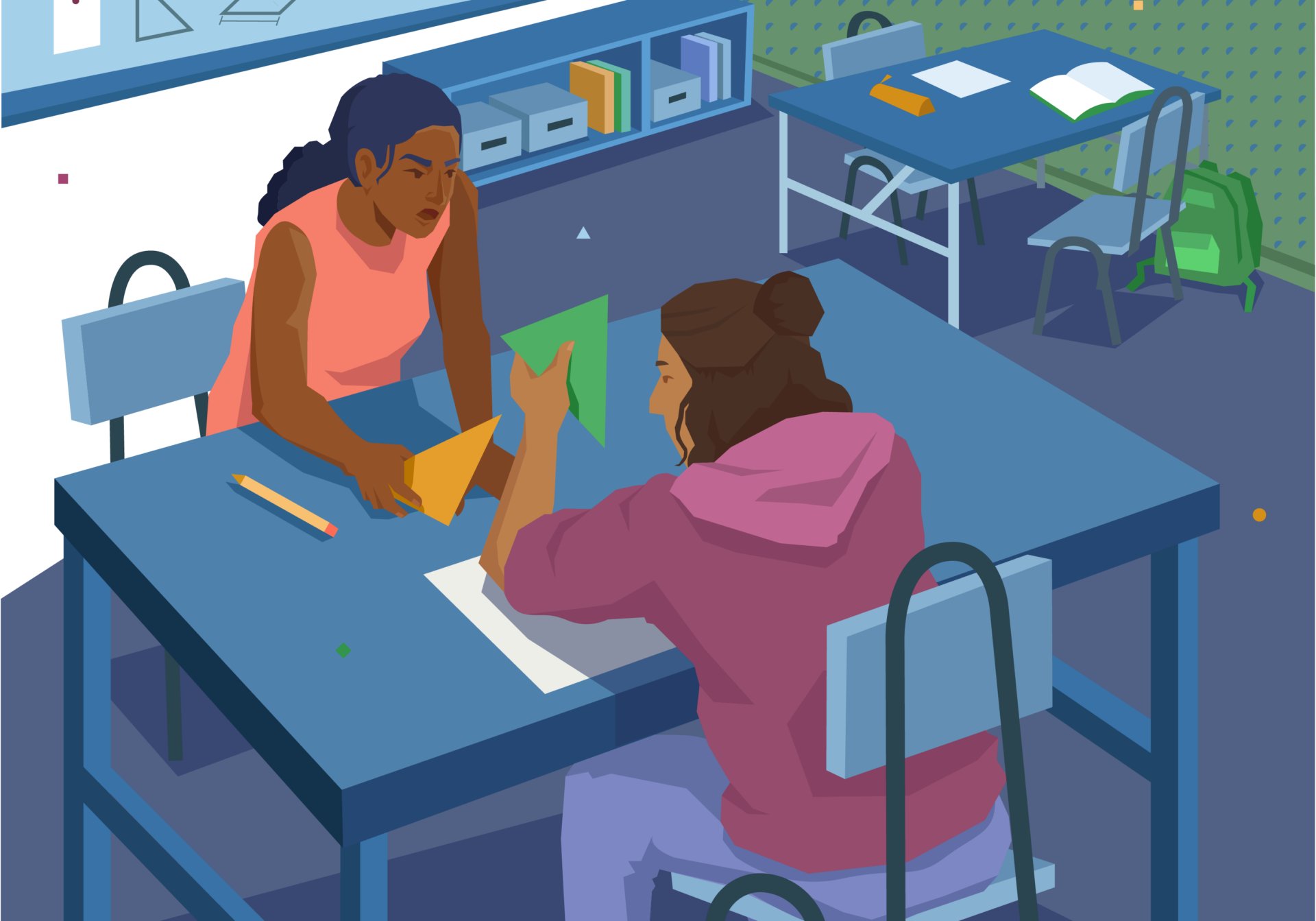
It’s the educator’s eternal question: How do I keep students engaged?
When designing daily math practice, teachers are always working to make real-world math problems fresh and relevant, find new entrance points for concepts, or simply come up with surprises. All of these approaches can be very effective.
And though it may seem counter-intuitive, so can routines.
The power of instructional routine
The word routine can connote a sense of doing something mechanically, even without thinking. But teachers know that well-placed classroom routines can open opportunities for creative thought.
Routines provide a way for you and your students to build and maintain a sense of familiarity and structure throughout the school year. They also free up time teachers would otherwise spend giving directions. When students know exactly how a certain activity should run, and understand all instructions and expectations, everything goes more smoothly.
That’s why a core set of shared routines can be a powerful, practical force for establishing an effective classroom learning community..
Bringing math routine into the classroom
We know routines can be effective in any classroom. Now, we also have research offering direct evidence that certain routines are particularly effective in math classrooms.
Think-pair-share
Do you want your students to have more time to think before solving and sharing about a problem?
GOAL: Provides opportunities to identify, compare, and contrast multiple strategies
TIP: During partnered discussion, consider displaying sentence frames such as, “ First they… Next they…” “Their strategy was to…” or “I see a/an… in both strategies.”.
How to do it:
- Invite students to solve a problem that can be solved with multiple strategies. Then, display two or more different responses representing different strategies.
- Give students time to analyze the strategies on their own and then invite them to discuss them with a partner.
- Facilitate a class discussion to describe, compare, contrast, and connect the different strategies. Utilize open-ended questions like, “Why did different strategies lead to the same outcome?” or, “What was helpful about each strategy?”
Where to learn more
We worked with our curriculum team to develop routine cards for math teachers, so you can implement routines that are part of our math program in your classroom. Most of the routines you’ll find throughout Amplify Desmos Math have been specifically proven effective in math classrooms. All of them have been adapted from established teaching practices.
We invite you to access a sample set of some of our most popular routines and decide which ones to try out in your classroom!
Resources
Download free math instructional routine cards.
Explore Desmos Classroom.
Learn more about Amplify Desmos Math.



